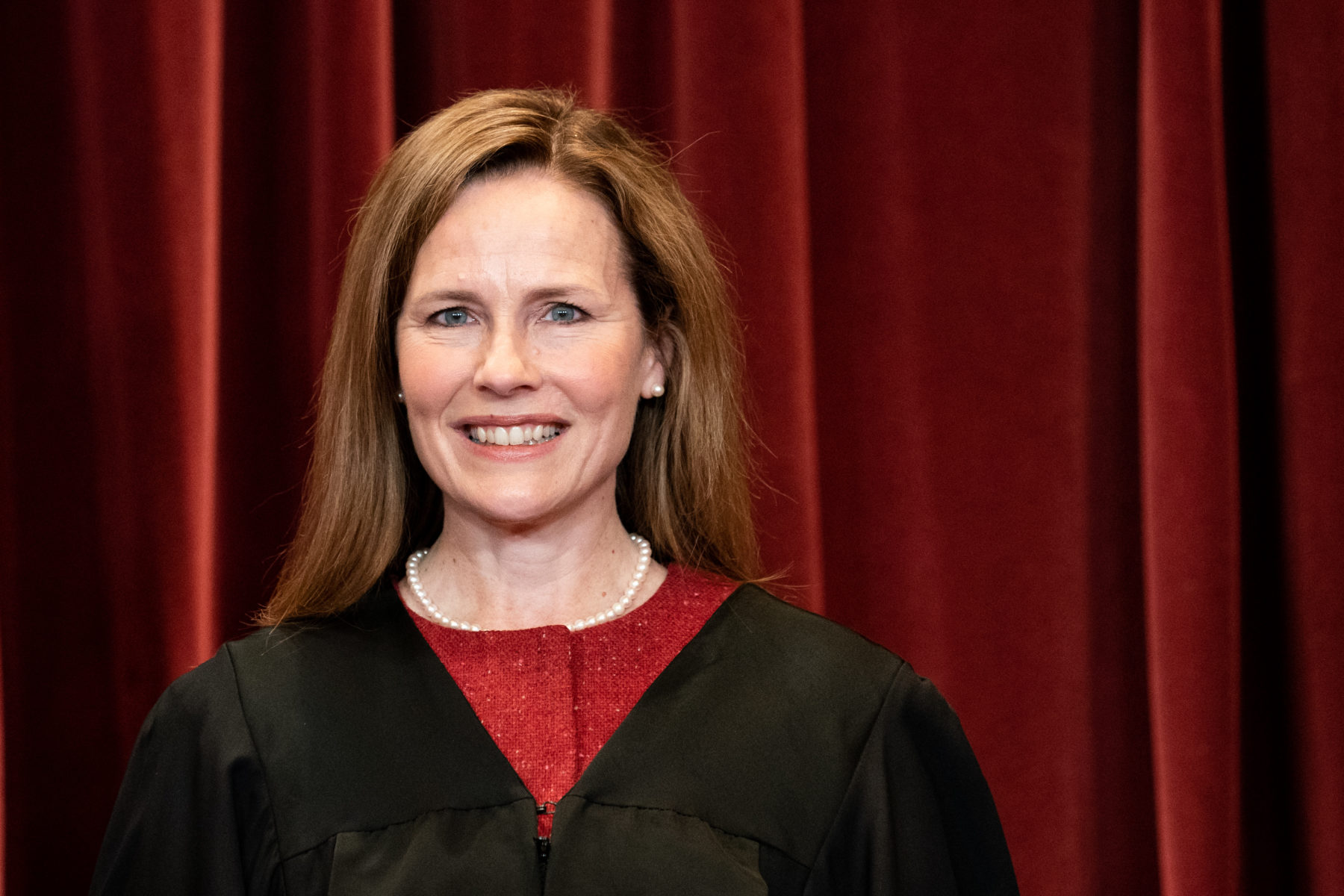
As a devout Catholic, Supreme Court Justice Amy Coney Barrett has a ethical conflict when it comes to ruling on abortion. She is obligated by oath to base her decisions on the Constitution and U.S. laws, but spiritually she is required to adhere to the church’s moral positions, which for centuries have entailed staunch opposition to abortions. Barrett herself has said that Catholic judges may have to recuse themselves in cases that come up against their moral convictions, writing in a 1998 Marquette Law Review article that Catholic judges should not participate in cases where they could face questions of sentencing a person to death.
But in the particular abortion case that is currently before the Supreme Court, Barrett has an additional, and more direct, conflict. Barrett has personally participated in the activism of a anti-abortion group that worked to get the case in front the court and is attempting to influence the court’s decision in hopes of having the Mississippi law upheld and Roe v. Wade effectively gutted.
Barrett in 2006 contributed her name to a newspaper ad that was organized and funded by an affiliate of the National Right to Life Committee (NRLC), a Virginia-based anti-abortion nonprofit. “We, the following citizens of Michiana, oppose abortion on demand and support the right to life from fertilization to natural death,” read the statement that Barrett signed. The statement ran alongside copy from St. Joseph County Right to Life that said the Roe v. Wade decision was “barbaric” and called for it to be overturned. St. Joseph County Right to Life is a county affiliate of Indiana Right to Life, which is a state affiliate of NRLC.
In July, NRLC and the Louisiana Right to Life Federation filed a 33-page amicus curiae with the Supreme Court arguing that Dobbs v. Jackson Women’s Health Organization, the pending case, should be remanded back to the lower court to create a new legal roadmap that eliminates the fetal viability logic and reverses “the anomalies on which Roe’s tangent from normal legal norms was built.” The brief argues that the roadmap should require courts to consider all state interests when evaluating their abortion laws, including protecting fetuses against pain at all stages of pregnancy. It was submitted by attorney James Bopp, who in 2018 met with President Trump and asked him not to nominate Brett Kavanaugh for the seat vacated by Anthony Kennedy and to instead choose Barrett.
Bopp has said that his amicus brief “supports the overturning of Roe v. Wade and provides a legal framework that will lead directly to achieving that goal.”
NRLC has helped to draft state bills like the Mississippi law at the center of the Dobbs case that ban abortions well before the period of fetal viability, which the court said in Roe was at 28 weeks. NRLC’s state legislative director Ingrid Duran told the Associated Press in 2018 that the state bills the group promotes are aimed at the Supreme Court. “We did draft these laws with the bigger picture in mind,” Duran said.
Barrett did not disclose her signing of the NRLC ad in the nomination documents she presented to the Senate Judiciary Committee.
Despite Barrett’s endorsement of the NRLC affiliate’s statement, she is not recusing herself in the case. Supreme Court justices are allowed to decide on their own individual recusals and are the only federal judges who are not bound by a code of ethical conduct, though federal law states that “any justice, judge, or magistrate judge of the United States shall disqualify himself in any proceeding in which his impartiality might reasonably be questioned” and that they should disqualify themselves when they have “a personal bias or prejudice concerning a party.”
The Mississippi law prohibits abortions after 15 weeks of gestation except when there is a medical emergency that threatens the life of the pregnant women or when there is a severe fetal abnormality that is incompatible with life outside the womb.
